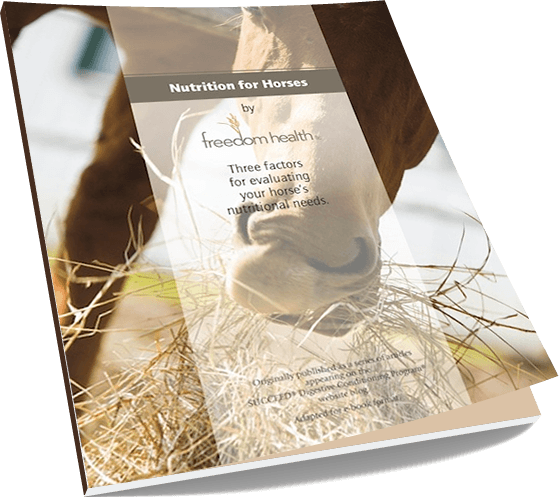Whereas equine gastric ulcers are found in the stomach, colonic ulcers are lesions that occur in the hindgut (specifically the colon). A horse is a “hindgut fermenter,” meaning it ferments forage in its colon to create Volatile Fatty Acids (VFAs), which produce the majority of a horse’s energy. Because the hindgut is where most of the horse’s digestive process takes place, it is vital to overall equine health.
Causes of Equine Colonic Ulcers
As with gastric ulcers, the causes behind colonic ulcers are also uncertain. Both occur when the mucosal lining of the affected area is compromised. Potential triggers include:
Right Dorsal Colitis
Use of NSAIDs, such as the common anti-inflammatory phenylbutazone, or Bute, has generally been thought to cause right dorsal colitis. These medications stop the production of chemicals called prostaglandins in order to reduce pain and inflammation; however, they cannot distinguish between damaged and healthy tissue. This affects mucous production and blood flow to the hindgut, leading to colonic ulcers.
Parasites
Hindgut Acidosis
When the acidity in the hindgut is raised (therefore lowering the pH), hindgut acidosis is induced.
This condition is caused by large quantities of undigested simple carbohydrates (i.e., starches and sugars commonly found in processed grain feed) reaching the hindgut of the horse, and producing lactic acid.
This drop in pH may reduce mucous production, leaving the mucous membranes of the hindgut vulnerable.
Endotoxins, released when fiber-digesting bacteria die off as a result of hindgut acidosis in the horse, are also thought to be a harbinger to colic.
Reduce the Risk for Equine Colonic Ulcers
Because the way we care and feed for horses varies greatly from their life in the wild, domesticated horses are prone to digestive imbalance that can lead to colonic ulcers. Understanding and awareness of colonic ulcers is not as prevalent as that for gastric ulcers; however, we believe that equine ulcers can be stopped before they start by making changes to the horse’s diet.
- Reduce concentrates (grains and processed feeds) and increase forage in the diet
- Feed smaller meals more frequently throughout the day
All of this will help ensure that carbohydrates are digested in the foregut where they belong. This keeps starches out of the hindgut so that the pH remains balanced and its acidity low.
Learn more by reading the Your Horse Ulcer-Free series:

FREE eBook:
Nutrition for Horses
Three factors for evaluating
your horse’s nutritional needs.
